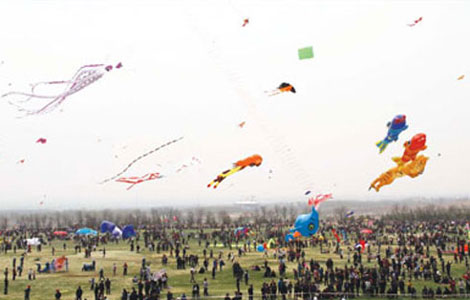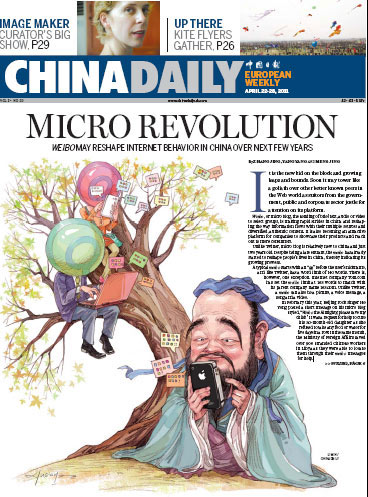Hot issues
Growing concern over school milk program
Updated: 2011-04-28 07:31
By Zhou Wenting (China Daily)
Well off target
China's school milk program is still in a fledging phase, covering only 1 percent of students. The original target was 30 percent in 2010.
The program's broader goals were to improve the health of children and teenagers, advocate the concept of scientific diet, and promote the rapid development of the dairy industry.
In 2000, five major cities carried out pilot programs. By 2006, four of them had sunk in stagnancy.
For example, the Shanghai Municipal Education Commission called it quits after the soymilk poisoning in Liaoning province in 2003. Guangzhou had been the best performer, but participation dropped from 40 percent in 2007 to 12 percent this year, according to a milk market analysis and a dairy industry plan from Guangzhou.
The national school milk program continues, but experts say it seemingly has become philanthropy.
"Parents in developed cities are more willing to buy expensive and high-quality milk for their children by themselves," said Sang, the food-safety lawyer. "So the school milk project is now more noticeable in backward areas, including many cases where local governments pay the bill."
Experts say that if the program is called off in some areas, students will be harmed.
"The school milk program should be a boon for students nationwide," Sang said. "Local governments shouldn't give it up for fear of milk scandals. Large-scale businesses and State-owned enterprises can take part in and shoulder more social responsibilities."
'Invest in children'
The United Nations Food and Agriculture Organization reports that 62 countries have implemented school milk programs. Roughly half are developed countries and half are developing.
Experts are frustrated to see the program cannot find its place in China. They attributed the failure to weak supervision and overwhelming business costs.
Wang, the former Guangdong dairy association official, said a local permit to produce school milk is a stepping stone for companies to enter a local market. But once the permit is obtained, he said, companies might not strictly follow the processes and meet the standards for student milk.
Detection equipment, inspectors and other means of ensuring product safety are costly, Sang said. If an enterprise cannot produce a profit - remember, the school milk price must be lower than market price - it has fewer resources to ensure the quality of its products.
Even local watchdogs have proved to be of little help. "In many areas, one could find a 'school milk office', which is responsible for supervising the local school milk program," Wang said. However, he added, the office usually has other responsibilities that take priority.
Experts suggested a national program that is fully carried out by the government as a solution.
"It can be managed by the cooperative efforts of the Ministry of Education, quality inspection department and others, who are in charge of unified bidding, establishing a long-term mechanism and implementing strong penalties," Sang said. "This is also a good way to prevent collusion of local governments and businesses."
Wang came up with the same solution. "The government can set up a production chain and supervise the whole process, from raw material collection to delivery."
In many places, especially well-developed ones, Wang said, local governments are doing well on social service programs. "Why can't we invest more in children?"
Sang said China can learn from the United States, which experienced serious food safety problems a century ago but reversed its plight. The president, Theodore Roosevelt, was determined to make a change. Later, the Food and Drug Administration and a quality inspection system were established in succession.
"The Chinese government can also solve the problem," Sang said, "and the key is determination."
Wang Yan contributed to this story.
E-paper

Blowing in the wind
High-Flyers from around the world recently traveled to home of the kite for a very special event.
Preview of the coming issue
Image maker
Changing fortunes
Specials

British Royal Wedding
Britain's Prince William and his girlfriend Kate Middleton get married on April 29.

Costly dream
Uninhabited havens up for lease but potential customers face wave of challenges in developing them.

Models gear up car sales
Beauty helps steer buyers as market accelerates.
